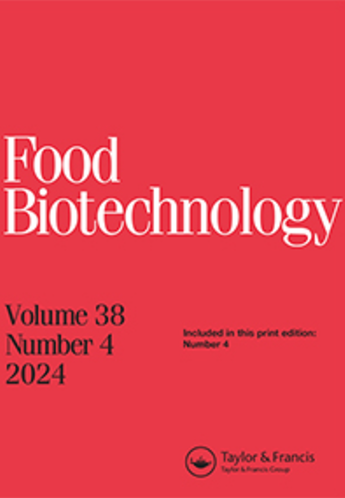Perspectives of bovine and human milk exosomics as health biomarkers for advancing systemic therapeutic potential
IF 1.6
4区 农林科学
Q4 BIOTECHNOLOGY & APPLIED MICROBIOLOGY
引用次数: 0
Abstract
ABSTRACT The epithelial cells of the mammary gland secrete extracellular nanovesicles known as exosomes that carry and protect microRNAs and other various signaling biomolecules. Milk exosomes are stable during processing and remain protected from digestion in the gastrointestinal tract in order to reach specific target cells including peripheral tissues by crossing biological barriers. Milk exosomal microRNAs have their role as growth-promoting factor, in immunological programming, improving allergy tolerance and epigenetic controller of other mRNAs. However, in contrast, many translational evidence indicated that excessive consumption of bovine milk and continuous exposure of these exosomal microRNAs may be responsible for chronic inflammatory diseases of contemporary societies. Milk exosomes have potential preventive impact on necrotizing enterocolitis, ulcerative colitis, and inflammatory bowel diseases and may be targeted as preventive medicine or in therapeutic diets and also have potential as a nano-vehicle for drug delivery for chemotherapy.牛和人乳外泌体作为促进全身治疗潜力的健康生物标志物的前景
摘要乳腺上皮细胞分泌称为外泌体的细胞外纳米囊泡,携带并保护微小RNA和其他各种信号生物分子。牛奶外泌体在加工过程中是稳定的,并在胃肠道中保持不被消化的保护,以便通过跨越生物屏障到达包括外周组织在内的特定靶细胞。牛奶外泌体微小RNA作为生长促进因子,在免疫编程、提高过敏耐受性和其他微小RNA的表观遗传学控制器中发挥作用。然而,相比之下,许多转化证据表明,过量食用牛奶和持续暴露这些外泌体微小RNA可能是当代社会慢性炎症疾病的原因。牛奶外泌体对坏死性小肠结肠炎、溃疡性结肠炎和炎症性肠病具有潜在的预防作用,可作为预防药物或治疗饮食的靶点,也有可能作为化疗药物递送的纳米载体。
本文章由计算机程序翻译,如有差异,请以英文原文为准。
求助全文
约1分钟内获得全文
求助全文
来源期刊

Food Biotechnology
工程技术-生物工程与应用微生物
CiteScore
3.80
自引率
0.00%
发文量
15
审稿时长
>12 weeks
期刊介绍:
Food Biotechnology is an international, peer-reviewed journal that is focused on current and emerging developments and applications of modern genetics, enzymatic, metabolic and systems-based biochemical processes in food and food-related biological systems. The goal is to help produce and improve foods, food ingredients, and functional foods at the processing stage and beyond agricultural production.
Other areas of strong interest are microbial and fermentation-based metabolic processing to improve foods, food microbiomes for health, metabolic basis for food ingredients with health benefits, molecular and metabolic approaches to functional foods, and biochemical processes for food waste remediation. In addition, articles addressing the topics of modern molecular, metabolic and biochemical approaches to improving food safety and quality are also published.
Researchers in agriculture, food science and nutrition, including food and biotechnology consultants around the world will benefit from the research published in Food Biotechnology. The published research and reviews can be utilized to further educational and research programs and may also be applied to food quality and value added processing challenges, which are continuously evolving and expanding based upon the peer reviewed research conducted and published in the journal.
 求助内容:
求助内容: 应助结果提醒方式:
应助结果提醒方式:


